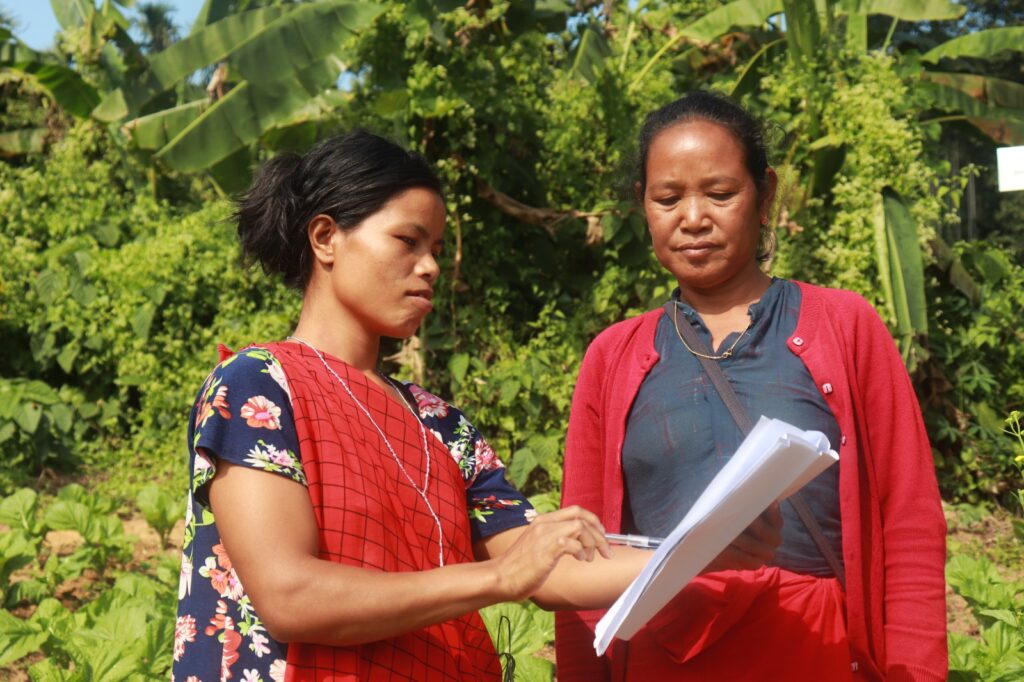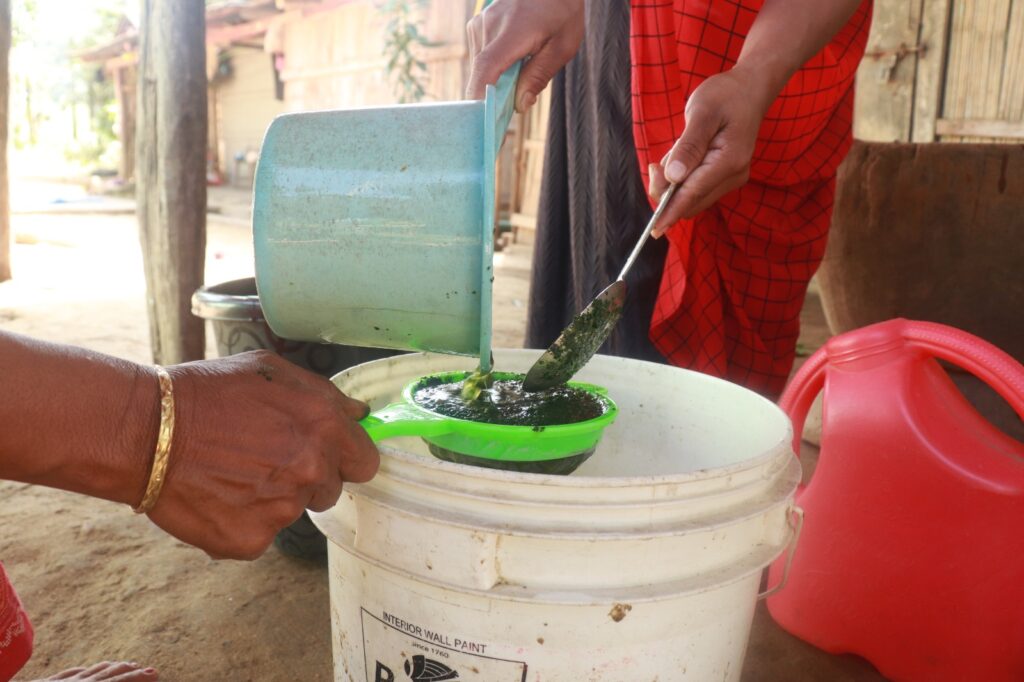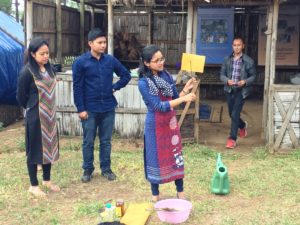Traditional farming has become increasingly popular in recent years due to its health benefits and positive impact on the environment. The use of chemical pesticides in conventional farming has been linked to health problems and environmental degradation, prompting many farmers to switch to traditional farming methods. In Belkuri community, Kong Filty Teron is leading the charge in traditional farming and has made significant strides in reducing pests that infect green vegetables using local-soap water.
Kong Filty Teron is a member of the ALC (Agroecology Learning Circle) and is known for her innovative approach to traditional farming. She is the first person in the village to use soap water to reduce pests in green vegetables, and her experiment has been a success. She cultivates a variety of organic crops in her garden, including chili varieties, capsicum, beans, cucumber, lady’s finger, mint, mustard leaves, pumpkin, and more.
The ALC in Belkuri community is part of the ongoing NESFAS project, “Empowering indigenous Communities through Agroecology Learning Circles (ALCs) for resilient, integrated and innovative natural resource management,” which is supported by MBMA and funded by the World Bank.
Teron’s dedication to traditional farming is evident in her continued experimentation with different methods to reduce pests and preserve the health of her crops. Her use of soap water to reduce the impact of pests, such as loopers, on crops like beans, mustard leaves, and mint leaves, is just one example of her innovative approach to farming.

In her quest to promote traditional farming, Kong Teron follows a strict regimen that involves multiple steps. She first cleans her garden to remove any debris or waste that may have accumulated. Then, she tills the soil and allows it to rest for a few days before obliterating it to remove any weeds or other unwanted vegetation. After this, she tops off the soil in lines and digs pits where she places cow dung, which serves as a natural fertilizer for her crops.
Her farming methods have proven to be very successful, allowing her to consume the organic vegetables she cultivates and also sell them in the market. However, she acknowledges that there are still challenges that she must overcome, particularly when pests become widespread during certain seasons. Nevertheless, she remains committed to promoting nature-based farming practices to safeguard and preserve certain types of crops in villages, as well as to preserve local seeds for further cultivation.
Kong Teron’s experimentation with mustard leaves using her own local knowledge is a testament to her dedication to traditional farming. She understands that such farming is not only essential for our health and the environment but also plays a crucial role in preserving the cultural heritage of farming communities. Her message to fellow farmers is clear: they should practice and strengthen the practice of traditional farming in order to preserve local seeds, safeguard crops, and promote the health of the environment and their communities.

Kong Teron recommends that fellow farmers practice or strengthen traditional farming to safeguard and preserve certain types of crops in villages and to preserve local seeds for further cultivation. She believes that this type of farming is essential for our health and the environment and hopes that more farmers will adopt this method of farming. “The message I want to convey to all my fellow farmers is that they should practice and strengthen this practice in order to safeguard and preserve certain types of crops in villages and to also preserve local seeds for further cultivation,” she said.





